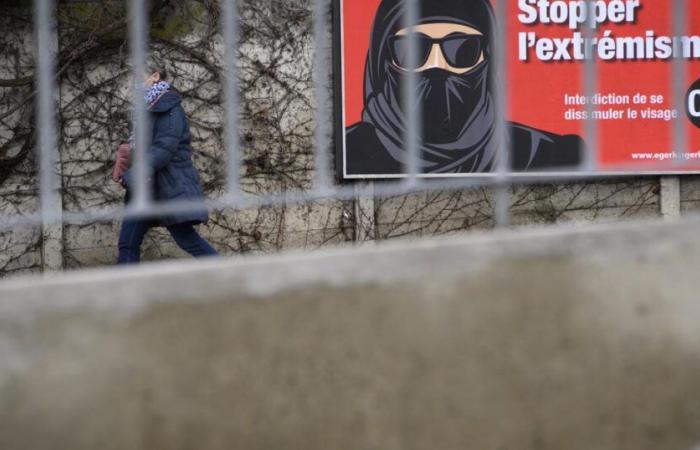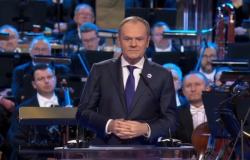The Federal Law on the Prohibition of Concealing the Face (LIDV) came into force on January 1 in Switzerland. Anyone who hides their face in places accessible to the public risks a fine. Concretely, what does this mean? Answers with Alexandre Brahier, spokesperson for the Geneva cantonal police.
On March 7, 2021, the people and the cantons accepted the popular initiative “yes to the ban on covering the face”. Until now, only the canton of Ticino had such a law. In Geneva, there was also a less restrictive law, only prohibiting covering one’s face during demonstrations.
But in concrete terms, what does a ban on covering one’s face mean? “It is someone who will hide their features, the mouth, the nose, the eyes, in such a way that the person’s expression is made impossible,” explained the spokesperson for the cantonal police. Genevan Alexandre Brahier in the show On en parole from January 1, 2025.
The law also speaks of a ban in places “accessible to the public” and not in “public spaces”. “There is public space in general, as well as private spaces accessible to the public. The latter include swimming pools, beaches, thermal baths, football fields, ice rinks, restaurants, nurseries and so on. suite”, specifies Alexandre Brahier.
Concrete cases
In Geneva, are the police often confronted with people who hide their faces? “Often, I would say no. However, more and more often we have people who, to commit crimes, will try to hide their face. This is where this new law is interesting, for example in sport, with hooliganism”, explains Alexandre Brahier.
And if the police come across people wearing burqas, what will happen? “We will ask them to show their face to be able to formally identify them. If this is not possible, we will take them to the station with us. The new law provides for a fine of 100 francs in cases of violation “, replies the spokesperson for the Geneva cantonal police.
Many exceptions
The law specifies that it is authorized to hide one’s face to ”maintain local customs, or for artistic or advertising purposes”. “Local customs have been anchored in the place for some time by the population. For example, Halloween is a foreign custom, but which is also considered in Switzerland as a celebration. We think of all the street shows, the funerals singles and parades, notably Escalade.” As for advertising purposes, these would designate for example a mascot for the next women’s Euro, or a sandwich man.
It is also allowed to wear a mask to protect yourself or others from germs and other viruses. But in very cold weather, do you have the right to hide your face by wearing a hood or a scarf that goes up to your eyes? “It’s about common sense,” replies Alexandre Brahier. “We are not going to rush to declare someone who has just put down their bike or scooter and who still has the hood on them in violation. The Covid mask is to protect their health and motorcycle helmets, This is to ensure safety.”
According to the spokesperson, minors under 10 years old are not affected. Then, “from 10 to 15 years old, a contravention report is drawn up for the juvenile court. And from 15 years old, a fine of around 100 francs applies”, concludes Alexandre Brahier.
Radio subject: Muriel Mérat
Web adaptation: Myriam Semaani






